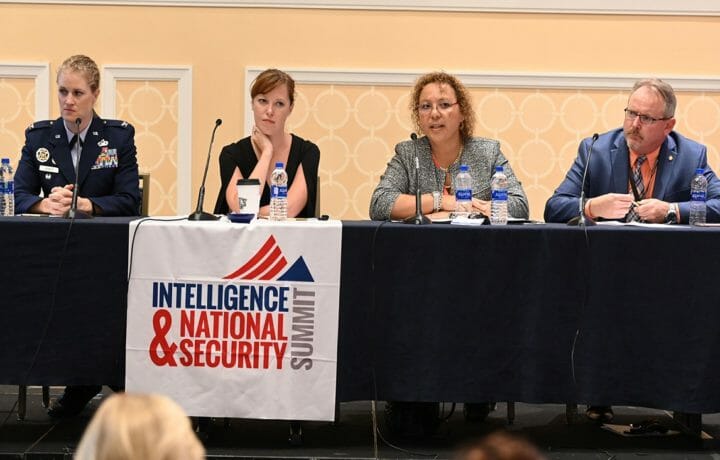The government faces an unprecedented number of national security challenges, and this week leaders from across the intelligence community unpacked them at the annual Intelligence and National Security Summit, hosted by the Intelligence and National Security Alliance (INSA) and AFCEA. From supply chain and 5G security to Russia’s election meddling and creating a branch for space (yes, space) intelligence, government leaders agreed that while the threats are significant, there is a passionate, capable intelligence force willing and able to tackle those problems.
And while many bemoan the hiring difficulties within the federal government, and specifically the intelligence community, the issue is not a people problem, it’s a process one.
“We want the right workforce, at the right time, in the right place,” said Celia “CC” Durall, Acting Deputy Director of National Intelligence for Human Capital, Office of the Director of National Intelligence, at a panel on recruiting and developing the workforce of the future.
Panelists emphasized the issue within government isn’t finding candidates who are attracted to the mission – it’s the speed of the government hiring process, and the difficulty keeping quality candidates engaged during that lengthy government time-to-hire.
Col. Jennifer Sovada, Chief of ISR Talent Management at the U.S. Air Force noted she’s seeing an increase in those with a desire to serve. The issue is attracting cyber candidates who are willing to endure an onboarding process that could be nine months long, when Google or Microsoft can hire them today.
“The youth of this country is as committed to keeping this nation safe as we were,” echoed Donny Weber, Chief, External Recruitment, National Security Agency. The NSA is known as a recruitment powerhouse in the national security space, with successful initiatives in both diversity and student outreach. The NSA hired over 2,000 candidates last year, meeting its diversity numbers with 41% female hires and 33% minorities. A high-school work study program onboarded 186 kids from across the country.
With lengthy security clearance processing times and federal onboarding procedures contributing to the cyber hiring gap, there is a need to develop ways to grow the current workforce.
“How do we upskill our current workforce” is the question, rather than simply trying to recruit more data analysts, said Sovada.
The intelligence community is also working with universities across the country to help them develop the skills – and understand the diversity of missions – within the federal government. Those missions require specialists, but also people with multidisciplinary skills to help them bridge knowledge gaps.
Don’t just be a specialist on China, but now China deals with AI. Don’t just focus on Russia, but Russia and big data, emphasized Loren DeJonge Schulman, deputy director of studies, Center for a New American Security.
In addition to hard skills in areas like language and tech, panelists emphasized the soft skill necessary to succeed in a national security career.
“We can train almost anything else, but if you don’t have a natural curiosity to learn and understand how the world works it’s much more difficult to do,” said Col. Sovada.
Intelligence community weekend warriors
Panelists echoed the ongoing need to create easier on and off ramp opportunities between the government and commercial sector. One proposal gaining traction and codified in draft legislation around the Hill is the opportunity to become a ‘weekend warrior’ for the intelligence community. The program would allow qualified individuals with in-demand skill sets to keep their civilian job but serve weekends and two weeks of dedicated service – similar to the military’s National Guard and Reserve.
A major hold up to the program is concern about conflict of interest between those whose day jobs include work with government contractors. Panelists emphasized those concerns are often overplayed, and would likely be impossible to eliminate.
“Kraft – as in macaroni and cheese – is involved in the defense industry,” said Schulman—pointing out conflict of interest inconsistencies are everywhere.


